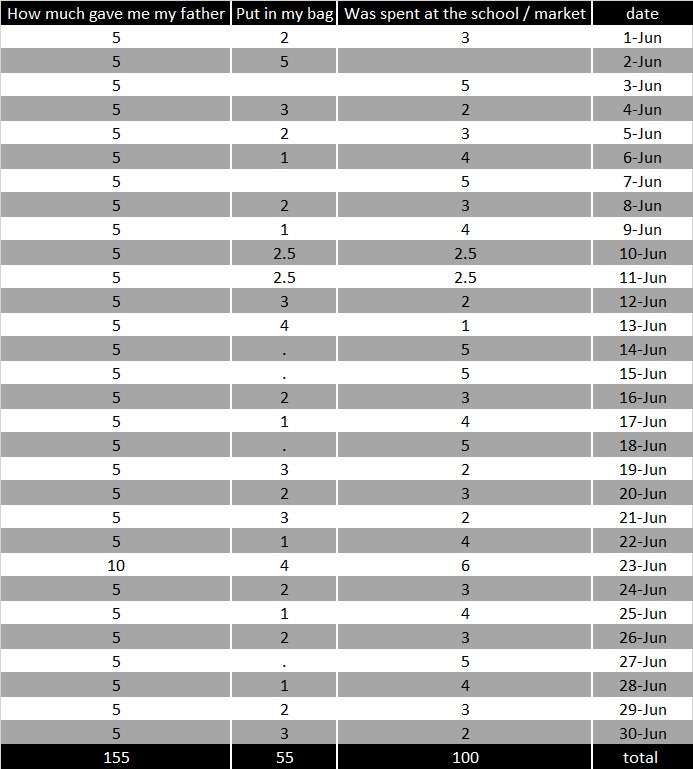I've recently switched over to an allowance system that is attempting to teach my son the value of money, and more specifically, saving money to earn more money. It's a very exaggerated interest-based system, but for a 7 year old it so far seems to be doing the trick.
First, I don't pay him an allowance for doing specific chores. I personally think it sets precedent for teaching him that everything he does comes with a dollar value, and that's not how family/life works. He gets an allowance for simply being a contributing member of the family. He has chores, and we expect him to do them. If he fails to do them often or runs into a streak of not living up to his end of the bargain, then we'll worry about consequences on a case by case basis. But I know not every kid is the same, so this is tailored to his personality specifically, and so far that works.
Back to the allowance. The model is this:
- He earns a base allowance of $X/week
- For every $Y he has in his savings, he earns an extra $Z/week
- He can earn a maximum of $n/week
An example:
- Base allowance: $3/week
- For every $10 in his savings, rounding down to the lowest 10 (starting at $10), he earns an extra $1/week
- He can earn a maximum of $7/week, capping the interest at $40 in his savings
In this system, I also make him present to me his cash on allowance day. If he misplaced his money, then he won't earn interest on the missing money, only on the money he's shown me at the time of earning his allowance. This keeps him more aware of his money and he hopefully learns to keep it safe. While not necessarily accounting, it does force him to account for it physically once per week.
It's also worth noting that he has a head for math and we've been giving him an allowance since he's been 5, so he understands, at a very base level, the value of money. It also started as a flat value allowance. While compounding interest is still something he's wrapping his head around, he gets the concept: Save more money, earn more money. And that's what we're encouraging him to do. If he wants something very badly, he can spend all of his money, but as we've seen already, he'll pause to think about it as he weighs up whether or not the item he wants to buy is worth losing out on his investment earnings.
All of the values can be tweaked as he gets older, encouraging him to save more money so he can earn more per week, or by reducing the minimum value to prevent it from, being too harsh when he reaches a savings goal and buyers something he really values. But that's part of a conversation I want to have with him eventually once he realizes the problem. When he finally realizes a squeeze in part of the system, he'll hopefully come to me and negotiate a compromise, which will start teaching him more valuable life lessons when it comes to understanding his own contributing value.
Ultimately, the hope is for him to use this system to reach several money-related goals. Personal finance is part of the journey and makes him accountable with actual value. The logistics side of personal accounting is the easy part, the meaning and importance of it is what we want him to learn first. That, and that the value of a dollar isn't [only] measured by salary or an hourly rate, but what you do with the money you've saved by having it work for you.


I think that the haptic feeling of "real" money (as opposed to virtual "money" in a bank) is important...note that you think that. In a decade, the eight year old will rarely be touching cash, and there's a good chance society will become fully cashless during her lifetime. Might be better to prepare her for reality. I was just talking with a 25yr old and I was surprised to learn that she'd never "not had the internet".